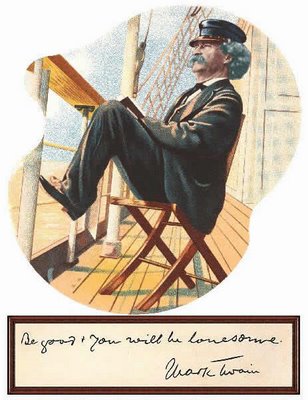So, about 5 years ago I transferred into a little hippie college in florida called New College. The liberal environment and grading scheme afforded me certain liberties, one of which was doing off-campus projects in far-off countries. For credit. At the time I was really interested in zoology, and in particular primatology; I thought that a life as a monkey scientist would complement my demeanor. So I designed myself a little trip to the tropics.
I landed in Costa Rica with a fellow New College student named Maria. Maria was crazy. I didn’t really know this at the time, as like most of you, she was able to hold her shit together for a little while, long enough to get me to go on the trip to Panama with her, and buy the hotel room in San Jose the evening we landed. Then she proceeded to go nuts, locking herself in the bedroom and crying. Maria was down there, as I was, to inhabit an island off the coast of Panama, Bocas del Toro, and study roving troupes of Black Howler monkeys. Apparently this wasn’t exciting enough an idea to her. I, on the other hand, was “stoked”, to use an expression of my youth.
Predictably, the main directive for the entire trip was to avoid Maria. The secondary directive was to find monkeys. And adventure. This mean that I spent fewer nights in the thatch cabin, and more of them roving about the island, sleeping in a tent on the most level surface I could find. Armadillos and coatis were frequent night-visitors, rustling up ground for bugs. I frequently stepped on toads, which in Panama get to be about the size of a knapsack. Most of my camps were on the beach, under trees but near the water, so the small lapping waves of the Caribbean helped me sleep amongst the sound of giant frogs and nightbugs the size of my fist.
About halfway through the trip, I went on a hike with a guide named Oscar, Maria, and a couple of British eco-tourists (Nigel and Hussein, he and she), up the coast and into the densest part of the jungle. Oscar is this black Patoi native-type who can pick a berry and say, “you see dis? you make a tea outta dis and it’a cure ya’ asthma,” and “don touch dat tree, it’a make you go blind fo tree hours,” and the like. He’s about 7 feet tall and wears gymshorts and a worn polo shirt. He smells of the ocean.
At the halfway point of our trek through the jungle, we were kind of disappointed because we hadn’t seen any monkeys. A few rare tree frogs, plenty of sloths, and lots of nuts that had been eaten by monkeys, but they have the tendency to scutter off before humans get close. Unless you go to surf cities in Costa Rica, where the howlers have learned that humans love to give out free food, and like it when you sit on their heads. Alpha howlers have huge balls, and placing themselves above subordinates is a typical offensive behavior, but most tourists don’t notice because they dig on the animal contact.
So we are tired and decide to stop at a small lagoon for a swim. We are walking, all five of us, in a line down to the lagoon; I am bringing up the rear because Hussein is having breathing difficulties, and Oscar wants me to make sure she doesn’t trail behind and collapse. So we’re going slow. As we walk down, there are lots of big tree trunks to walk over, and the rule here is, (remember this for your next jungle safari), you jump off the log, rather than just stepping down. I can’t remember what I did, exactly, but as I descended from a particular large fallen juju tree, I felt something slam against the back of my pants and land 5 feet in front of me. I saw X’s. Now, I grew up in Florida, where at our local Alligator Farm, we were told that X’s mean Diamondback Rattlesnake. This, apparently, was the 8-ft rattle-less version of the same.
It’s the first and only time I’ve ever screamed out ‘fuck’ without ever meaning to do so. I imagine that if I’m ever tortured with hot iron buttplugs I might make a similar sound; but at least that I’ll anticipate. Oscar walked back up and peered over to where I was staring. “Oh, dat is de famous eckees (equis = X in spanish) snake. Yeah, dat’s snake don like noise.” Or Italians, apparently. So Oscar cuts down a small tree, cuts it into a fork, because apparently he wants to catch the thing. He sneaks over, while the snake has been coiled up a few feet from me, and tries to catch it’s head in the fork. Miss. The snake runs (slithers) away, and into the lagoon, away from the tall Patoi. But Oscar follows him over, into the lagoon, and gets waist-deep before the snake turns around. I’ve got this great shot of the two of them, the snake coiled in the water, and Oscar with his stick raised high, both of them ready to strike. Oscar won. He slammed down the stick, 5 or 6 times, turning the water red with the snake’s blood.
He then takes the snakes body, lifts it up with the stick, and lays it on the bank that the four of us are standing. He says to me, “You want de skin, man?”



















